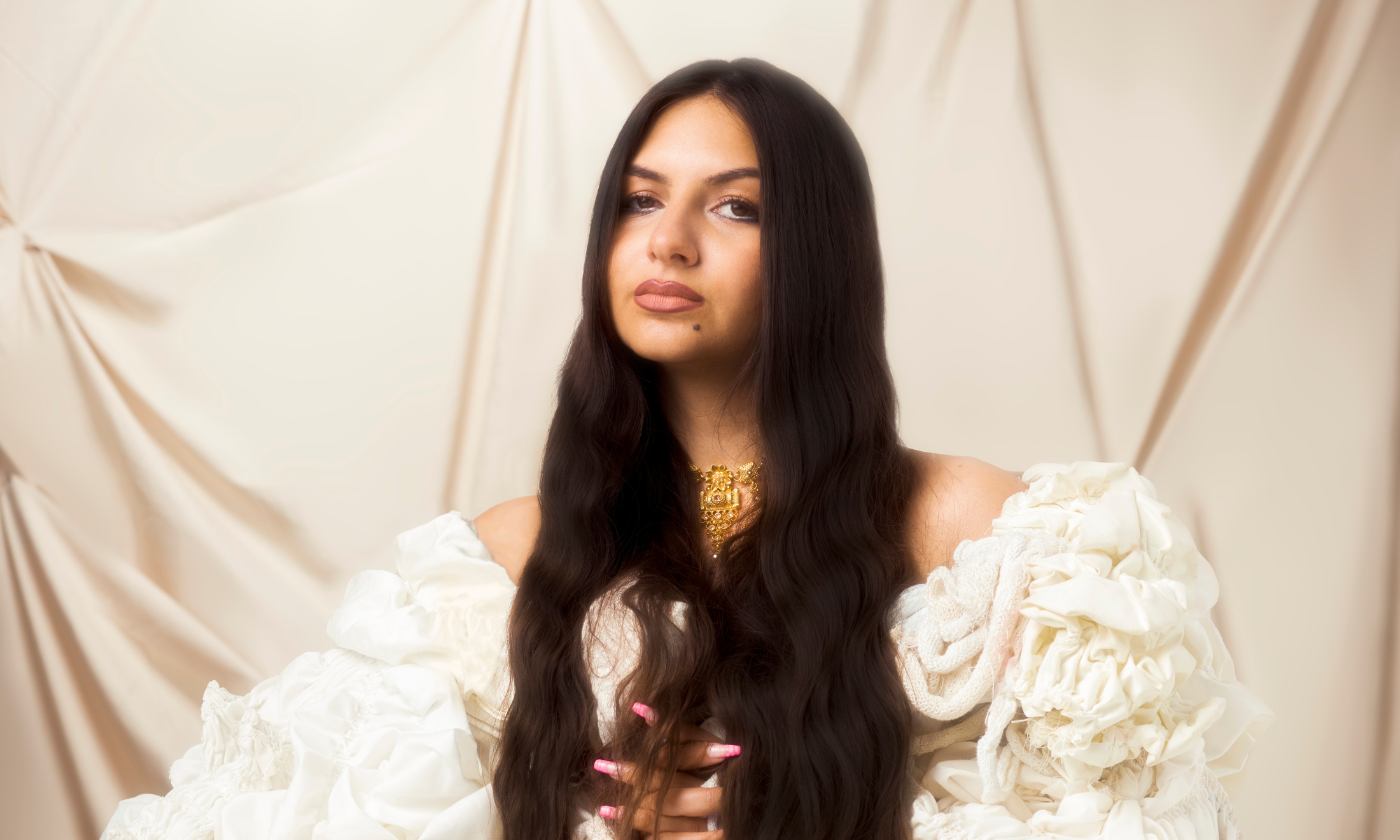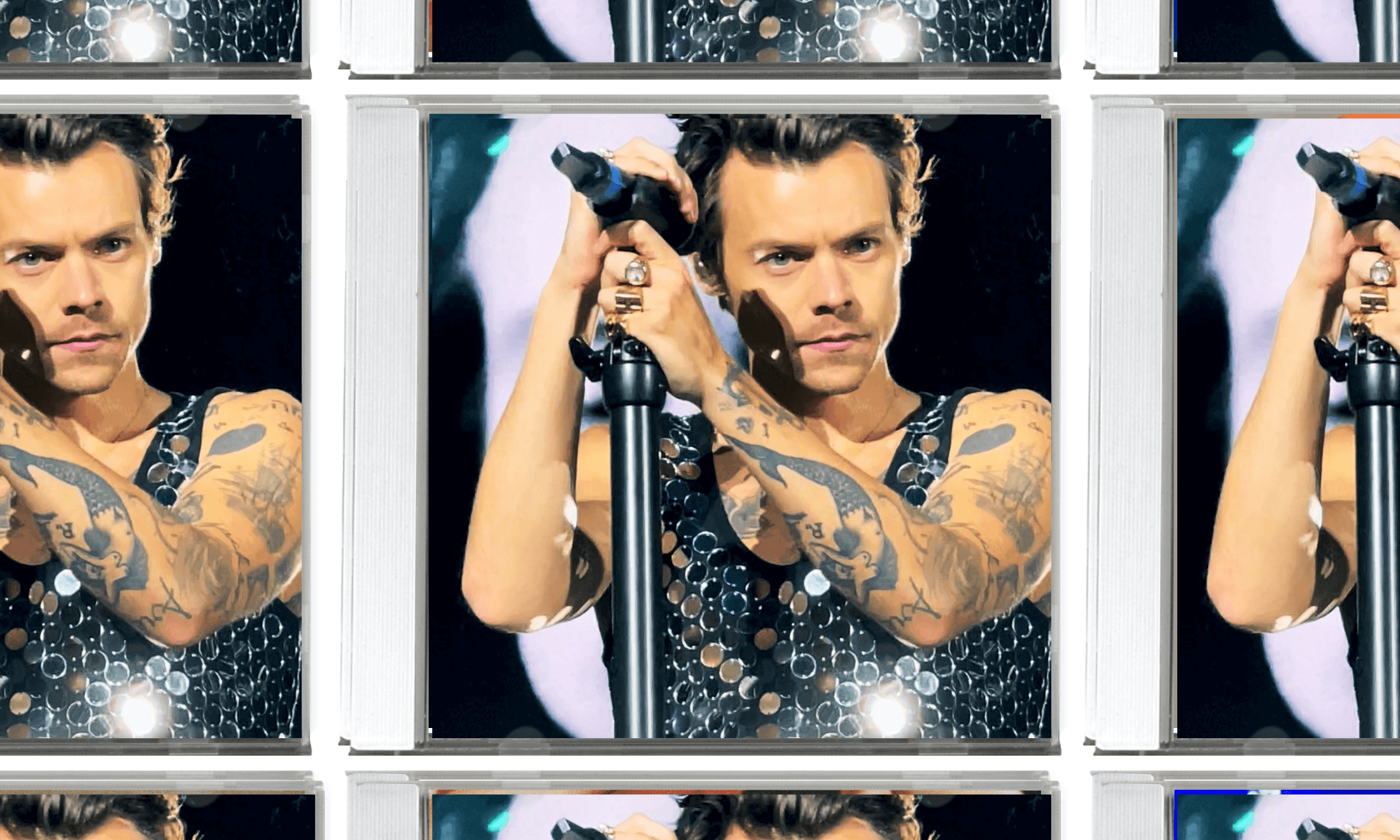
Chloe Bodur is channelling her dream-self
By exploring heritage and the freedom of fantasy, Chloe Bodur’s new EP, RÜYA, is a sensual serenade.
Abigail Ani
06 Oct 2022
There’s an irresistibleness about how London-born, Turkish-Sri Lankan singer-songwriter Chloe Bodur poetically floats between alt-R&B, psychedelic soul and “R&Bossanova”, a term she’s coined to capture the fusion of her sound. Drawing from the soulfulness of Anita Baker, the lyrical wit of Kendrick Lamar and the irresistible melodies of Astrud Gilberto, Chloe’s sultry, genre-blending style is simultaneously nostalgic and fresh.
Today, the 24-year-old juggles music with part-time work in her Dad’s ice-cream van in North-West London. She says working with her father has instilled a strong work ethic in her that she now applies to her creative ambitions. Following the release of her 2021 EP MAVI, she’s spent the past year readying new EP, RÜYA, a gorgeous effort that brims with confidence and simmering sexuality. With Thundercat and Sampha among her growing fanbase and a monthly residency spinning “blissful soultronic flavours” on coveted underground platform Balamii, her determination and work is clearly paying off.
Inspiring young South Asian and Middle Eastern women plays a big role in Chloe’s creative process, right down to video aesthetics and EP names. MAVI is named after the Turkish word for ‘blue’ and chronicles searing emotion, while RÜYA, which translates to ‘dream’, explores the concept of fantasy. On RÜYA, she harnesses a psychedelic soul soundscape to breathe life into her dream-self; the Chloe who rejects false guilt, freely expresses her sexuality and calls out lousy romantic partners.
By embracing this side of herself, she wants to show brown and Middle Eastern girls that they can feel beautiful and comfortable owning their sexuality. And even though she is still very much on the journey of discovering who she is, Chloe is making a conscious effort to stop conforming to other people’s standards: not only for herself, but for all who are yet to see themselves represented in music.
Ahead of RÜYA’s release, we caught up with Chloe to talk about dreams, confidence and inspiring the next generation.
gal-dem: You wrote RÜYA from the perspective of the freer and “more outspoken” version of yourself in your dreams. When was the last time you channelled that energy outside of songwriting?
Chloe Bodur: I’m actually quite shy and insecure, but I present as being very confident when I need to, especially when I’m on stage. I have such a warped sense of identity, I never really know who I am. So I guess I’m pretending almost every day to be this person that I want to be and hopefully it will be real and authentic one day. She’s still blooming, I think.
The lyricism in RÜYA is centred around divine femininity, sensuality and pleasure; the lyrics in ‘Come With Me’ include I love seeing you / On your knees / Adoring me as you should. How did you come to explore these concepts?
CB: To be honest, I didn’t actually set out to write about those things. It kind of happened by accident during the COVID lockdowns. I was just sleeping and dreaming all the time. That was my escape because I got so bored of being at home. Because I was writing about the experiences of that person in my dreams, I could push myself to talk about things I wouldn’t usually talk about.
I ended up talking about sex quite a lot [on the record]. I don’t know if it’s because of my cultural background, British awkwardness or a mixture of both, but it’s not something that I’ve spoken about that openly before. By allowing myself that freedom to be like “Oh, it’s not me, it’s that girl from my dreams that’s writing this project”, I was able to write songs like ‘Kitty and I’ and ‘Why U Always So Mean?’.
The EP begins with you reflecting on an abusive relationship from an empowered place in ‘Not My Fault’. Do you find it freeing to write about hardships?
CB: I hadn’t written a song about my experience in that relationship since it happened years ago. But my keys player VVilhelm played me this chord loop and I wrote the whole thing in two minutes. Something in those chords made all of the stuff that had been at the back of my mind for years just fall out. It’s me saying everything I wish I could have said at the time but never did, now as a more grown-up woman with a better understanding of myself and the situation.
I really did internalise a lot of the negative stuff he said for so long. It’s only been in the last year or two that I am feeling more confident about myself and I’m able to use that power to inspire other people. Having ‘Not My Fault’ as the first track and speaking so confidently about myself in the other songs is a quite big moment for me.
Bossanova has a strong rhythmic influence on ‘Why U Always So Mean?’. You’ve previously coined the term R&Bossanova to describe your music and have said that Brazilian music has “resonated” with you since childhood. How were you first introduced to it?
CB: My mum loves Bossanova so I heard a lot of Astrud Gilberto and Sérgio Mendes growing up. Sèrgio Mendes actually remade [’66 Bossanova classic] ‘Mas que Nada’ with The Black Eyed Peas. I was a really big fan of them, [so] that was one of the main things that got me into it. It was a really good entryway for a kid to get into that kind of music.
But I do think that, weirdly enough, as much as I love it, I don’t know if I’ll continue to tap into Bossanova as much because I’d really like to explore music and rhythms from my own heritage.
On the song, there’s a clear juxtaposition between upbeat Bossanova elements and the sadness of the lyricism. Was this intentional?
CB: Definitely. I really like seeing music as a performance and I thought it would be really ironic and funny to have a happy-sounding song with lyrics that are dark and sad. I think that if it sounded sad, it wouldn’t slap in the same way. I was actually smiling super hard while I was recording the vocals to try and get that happy sound into the lyrics.
You strive to break the mould and inspire the next generation of South Asian and Middle Eastern women. What does this look like to you?
CB: I think with each project I’m getting closer to achieving that. It takes a lot of self-discovery on my part…It’s so hard to package yourself as an artist when you have no idea who you are. That’s something I’ve always struggled with because I’ve always been in spaces where I haven’t totally felt like I’ve fit in. I’ve always had to camouflage a little bit. But, as I’ve gotten older, I’m consciously making the effort to not do that anymore.
“The main thing I want young South Asian and Middle Eastern women to take away from RÜYA is that they’re beautiful and deserving of love”
That’s why representing and talking about my heritage is so important to me. There aren’t a lot of artists from a similar background to mine and the ones that are don’t really talk about it, or rather fly under radar as ethnically ambiguous instead of declaring where they are from, which would actually make young people feel more confident in themselves. So I’m just trying to represent as much as possible in terms of aesthetics and just talking about my background.
How does RÜYA fit into your vision of achieving this?
CB: The main thing I want young South Asian and Middle Eastern women to take away from RÜYA is that they’re beautiful and deserving of love. And I want them to feel sexy as well because I think that we sometimes feel a bit awkward about owning and expressing our sexuality as brown and Middle Eastern women.
Is there now an album in the works?
CB: I haven’t started writing it yet. I don’t want it to be random stuff put together, I want to know what the story is and then do it properly. I think I’ve figured that out now, so we’ll hopefully get started on it in the next few months.
Like what you’re reading? Our groundbreaking journalism relies on the crucial support of a community of gal-dem members. We would not be able to continue to hold truth to power in this industry without them, and you can support us from £5 per month – less than a weekly coffee.
Our members get exclusive access to events, discounts from independent brands, newsletters from our editors, quarterly gifts, print magazines, and so much more!









